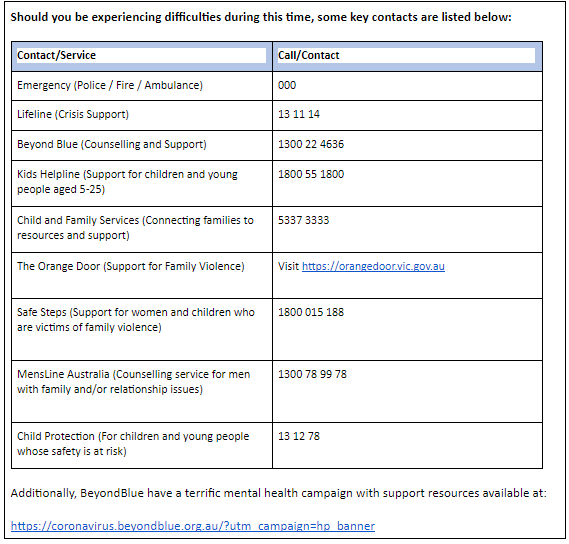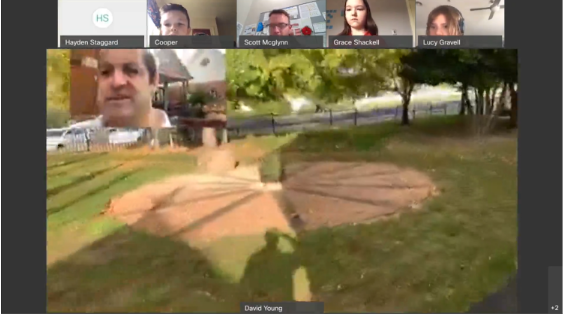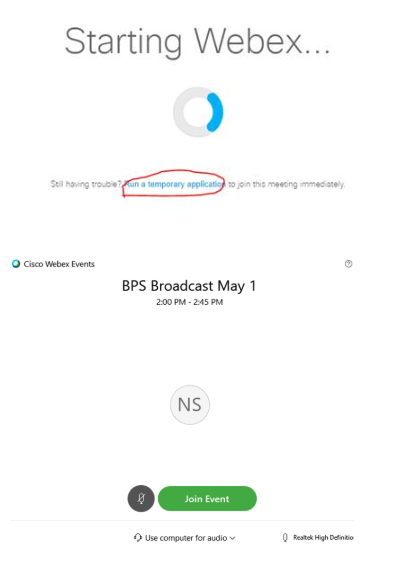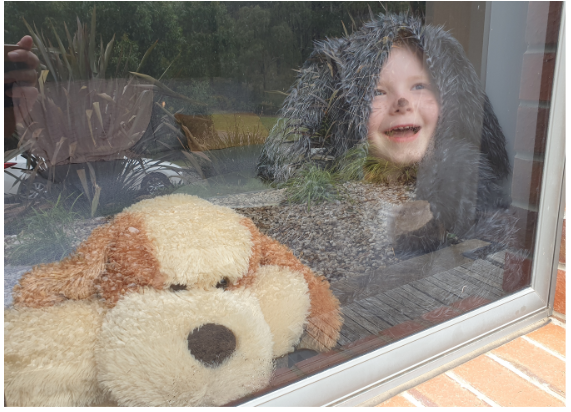Engagement and Wellbeing

The ‘Third Quarter’
Many of you would have seen in the media recently information about the Third Quarter phenomenon. This is something that affects many people in isolation and confinement for long periods of time. Below is an article from the ABC regarding this to help with dealing with this stage and to support our families further to understand where we are in the journey of COVID-19. Please take a read when you get a chance.
Article Source:
In studies of people isolated in submarines, space stations or polar bunkers, researchers have found there appears to be an inflection point where the frustration and hardship of being cooped up inside gets suddenly harder to bear.
According to the clinical psychologist who assesses the mental health of Australians in Antarctica, we're entering this phase now.
Dr Kimberley Norris, an authority on confinement and reintegration at University of Tasmania, told Hack that Australians have broadly been through two periods of isolation: an initial point where there was panic buying and confusion, and then a "honeymoon period" when it felt novel and different to stay at home.
"For a little while people were saying how they were loving working in pajamas, and not having to battle morning traffic," she said.
That phase — which we can call the sourdough starter moment, or the time when we all downloaded Houseparty — is passing.
"People are now saying they're feeling really lonely," Dr Norris said.
We may now be entering the dreaded third quarter of hollow-eyed stares, odd fixations and brooding resentment. Time grows sludgy. The days blur into the nights, and the weekdays into the weekends. You've hidden the notifications from a recently downloaded exercise app and you're no longer telling people you'll learn Italian. You begin to suspect that your friends have their own Messenger group.
"We don't understand what's going on with us," cosmonaut Valentin Lebedev wrote during the third quarter of a 211-day mission aboard a space station.
"We silently walk by each other, feeling offended. We have to find some way to make things better."
In the psychological study of extreme confinement and isolation, this is known as the 'third-quarter phenomenon'.
The discovery of the third-quarter
The phenomenon was first described in early 1980s studies that set out to determine how long humans could survive in space. They found that radiation or zero-gravity were arguably less of a problem than interpersonal conflict caused by isolation.
"Typically, mood and morale reach their [lowest point] somewhere between the one-half and two-thirds mark of the mission," one review found.
A 1985 book Living Aloft: Human Requirements for Extended Spaceflight identified three broad stages of reaction to prolonged isolation:
"These are a first stage of heightened anxiety, a second stage of settling down to routine marked by depression, and a third stage of anticipation marked by emotional outbursts, aggressiveness, and rowdy behavior."
In 2000, a study found that those stationed at Antarctic research stations reported significant increases in interpersonal tension during the third phase of their expedition, due to both loneliness and cliquiness. Other researchers found a decrease in mood occurring around the mid-point and third-phase of the stay in Antarctica.
Crucially, they found that this third stage depends on the relative passage of time — in a six-month mission it could happen at around the four-month mark, while in a one-year posting it might appear at the eight-month point.
What's important is what proportion of the mission has elapsed, and how much is still to go.
How does this relate to COVID?
"People who see the curve flattening think we've done it, we've beaten it," Dr Norris told Hack.
"That's the signal that it's not long now. That re-energises hope."
The fact that the daily number of new cases has steeply fallen from a peak a few weeks ago may give the impression we're past halfway.
Both infectious disease experts and the politicians responsible for the restrictions say we're not even close. The social distancing rules are likely to remain in force until at least September or October — modelling shows that allowing people to mix freely too soon would trigger a second-wave of infections.
The uncertain duration of COVID restrictions could stretch the 'third-quarter period' over many months. Rather than a set amount of time, it's a state of anticipation.
"In Antarctica we have what we call the 'A-factor' or Antarctica factor'," Dr Norris said.
"When the sea ice is too thick for a vessel to get through or the runway ice isn't thick enough to land, that's the A-factor.
Though there's no national dataset of arguments between friends, Dr Norris says that if it existed, it would be registering a big spike.
"When you drill down into these isolated and confined environments like space stations, submarines and Antarctica, interpersonal conflict is the number one reason for dissatisfaction and unhappiness," she said.
"The frequency with which it occurs increases the longer you've been isolated."
Some good news
There's already a lot of advice out there on getting through COVID. It includes creating structure in your day and staying social online.
These tips are important, as is appreciating that some dip in mood is inevitable.
Isolation affects people in profound ways, and how we respond to the COVID restrictions is partly out of our control.
Even fearless astronauts and polar explorers get knocked sideways simply by not having people around.
Take it easy on yourself, Dr Norris says. The next few months may be hard.
"All things that would energise people and assist them to function effectively have been taken away so this is a genuinely hard thing to go through.
But there's also some good news.
Despite the third-quarter phenomenon and other ill-effects, many people who experience isolation once want to do it a second time.
About half of those who overwinter in Antarctica want to go back, Dr Norris says, as well as nearly 100 per cent of astronauts.
"We ask them, 'If it's so bad why do you keep going back?'"
Through her work, she's found that those who have been through a period of isolation value the experience for what it has taught: They have a better idea of their personal values, and they're more committed to acting on them.
"When people have space to sit back and think it allows them to figure out what's important to them," she said.
"That's why post-COVID we will see differences in the way people engage with each other, in the way people work, in the priorities given to the environment, and the way people think about travel."
She's found that, following experiences in isolated environments, men are more likely to use social support as a coping strategy compared to before they went in, while women have an increased trust in their own abilities.
That is, men become less insular and women become more confident.
"A lot of people expect spirituality to increase," Dr Norris added.
"All our data to date indicates it does not - at least not in Western societies. Instead, people have better personal relationships."
Broadcast Reminder - Friday, May 8 (2pm)Broadcast Reminder - Friday, May 8 (2pm)
It was great to hear that so many people enjoyed last week’s broadcast and found it to run much smoother. As we have mentioned previously, we are on a learning journey with this and continue to try and improve each week’s broadcast. The school captains are doing an amazing job in working to ensure the broadcast is engaging and interactive with our students across the school.
Thank you for your patience and we look forward to another great turnout this Friday.
To connect to this week’s broadcast, please follow the steps below:
Make sure Webex Meetings is downloaded and installed prior to Friday.
You can click on the link below to access the meeting at 2pm, but will be unable to do so until Scott starts the event. Alternatively, you can open up the Webex Meetings application on a device in your household and join a meeting. This is where you can enter the number listed below.
If you are prompted to put in details, please do so and join. You can put in a fake mail address if need be: e.g. scott@mail.com
If you are directed to ‘RUN A TEMPORARY APPLICATION’, please do so.
Meeting Link:
https://eduvic.webex.com/eduvic/onstage/g.php?MTID=e20d5d4735a4ac41bb38f6fc10ce0538a
Meeting Event Number:
| 783 491 843 |
Password:
bps
Please note:
* The above room number and web link changes each week due to a new event being created.
* We will be polishing up the videos from previous weeks' broadcasts and sharing them as soon as we can.
Technical Issues with Streaming Video - Checking Your Download Capability
We are still receiving feedback that some families are having difficulty in downloading the stream and that it appears to be quite glitchy and stuck on one person. We have been working with Cisco to see if there is anything we can do at our end and have been advised that issues will primarily be due to congested in-house streaming, slower download speeds and an overall greater increase of internet usage in our community.
If you experienced difficulties last week in viewing the video stream, we suggest:
- Checking your internet download speed - You can do this by visiting https://www.speedtest.net/ on a device that is connected to your internet.
- Checking how many devices are connected and streaming media at the one time.
- Think of your internet download speed like water coming into your house.
- When the shower is the only thing on, the pressure is great. Then someone turns on the kitchen tap, puts a load of washing on and waters the garden at the same time…
- What happens in this scenario is that your water pressure (analogy of internet) decreases greatly and therefore the quality of your shower (internet speed) decreases greatly too.
- To really test this out, ask all of your family members to get on a device and watch something at the same time. Then re-test using the speedtest link above. Compare this to when you did the test by yourself and you will get a true indication of what’s happening in your family hom
3. If your speeds are limited, to say 3/4 Mbps, consider turning off all other devices, SMART TVs, etc that may be using the internet during the stream.
4. If this is something that has perhaps been an issue for a while, consider talking to your Internet Service Provider (ISP) regarding options that may suit you as a family during this time.
Additionally, please note that if you are directed to a web browser when entering the room number or link, please make sure that you click on the following:
*** We understand that streaming lots of moving video will also be difficult for families to watch as there will most likely be a lag period between showing what we have and you receiving it. That’s ok, just listen along and hopefully your video will kick back in to see the stream.
Sending in your ‘Teddy Bear Window’ Pictures for This Week’s Broadcast
Last week it was great to see so many students sharing their #ANZACATHOME experiences with the rest of the community. We know that this part of the broadcast is well-received by our community who are loving seeing what everyone else is up to.
One of our school captains, Lucy, challenged everyone this week to send in a picture of themselves in their ‘Teddy Bear Window’. Please refer to the idea shown as an example of what we’re looking for.
If you have been able to get involved and create something fun, please send your child’s photo to:
scott.mcglynn@education.vic.gov.au
We will then share these with the community at the end of the broadcast on Friday.
Remote Learning Winners from Last Week: May 1
Congratulations to our Remote Learning Award winners from last week! We’re proud of the great work you have been doing in a difficult time. Keep it up and we can’t wait to see who receives the awards for this week.




